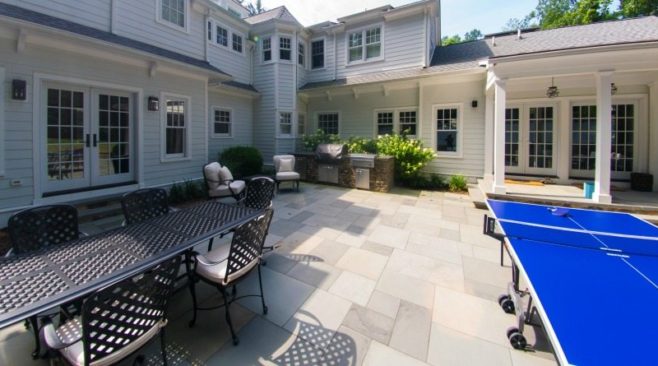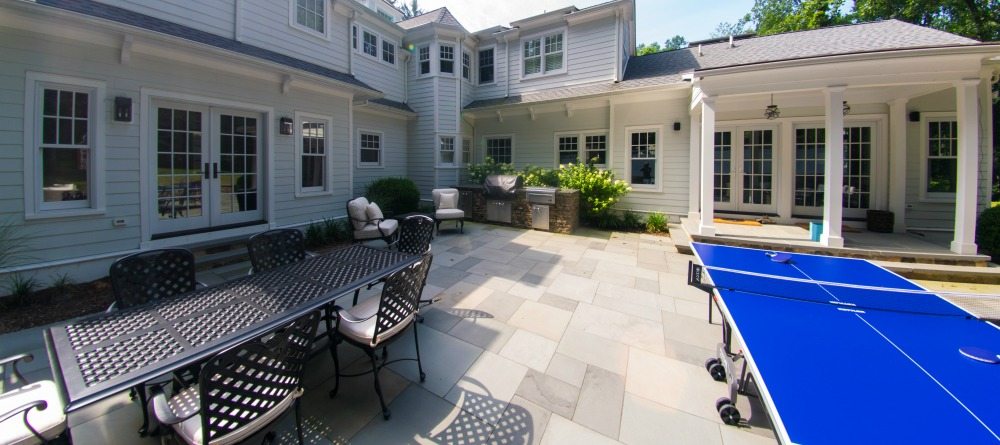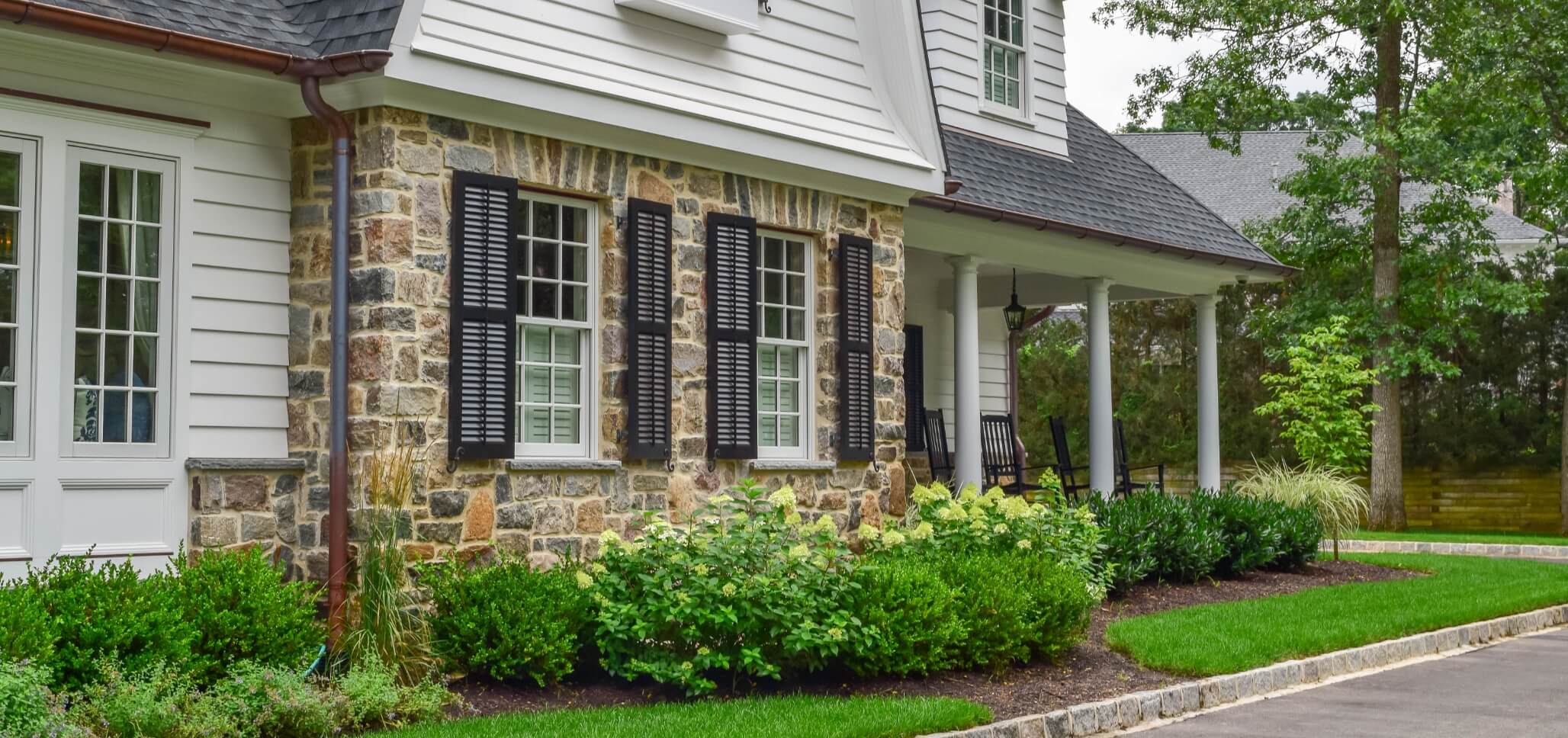If you’re ready to install the paver patio of your dreams, you’ll need to know exactly what goes into planning, installing and completing the project.
Yes, paver patios are a fabulous, low-cost investment that are easy to budget for, but you’ll only be fully prepared to get started when you understand everything involved with your outdoor living space.
So what, exactly, does a paver patio cost and how can you make sure that you’ve allocated the right amount of money for your upcoming project? Here’s everything you need to know.
Paver Patio Cost #1: The Planning Phase
Daydreaming about what your perfect paver patio would look like isn’t enough to get the ball rolling on your project. To ensure that you can move forward with your plans, you should have your property assessed by a professional and have them create an outdoor living plan for you.
They will be able to help you best utilize the space you have. You should also contact your local Building Department to inquire about the proper permits and requirements for large backyard projects.
The costs of these types of services may vary based on your specific city or township, you’ll need to make a few calls in order to work these costs into your patio design budget.
Paver Patio Cost #2: Tools, Machinery and Equipment
Because patio paver installations are relatively simple, many NJ homeowners make the decision to handle the construction process on their own. If you have experience with hardscaping or you’d like to try DIY, this might sound like an appealing option.
We always recommend leaving it to the professionals, but if you insist on doing it yourself, you will need special tools, machinery and equipment on hand. Since most people don’t have the right tools at their disposal, you’ll need to either buy or rent the necessary tools to get the job done right.
Rentals make more sense financially, but you should do your due diligence and research the costs of each option. Consider the benefits of buying vs. renting in order to get the most bang for your buck.
Be sure to look into the installation processes recommended by the manufacturer of your patio pavers in order to get the best idea about the type of equipment you’ll need to have on hand. For many paver patio projects, equipment such as backhoes, tamping tools, rollers and vibrating plates may be necessary.
Patio Paver Cost #3: Contractor Fees
Not everyone feels confident in their ability to handle a paver patio project on their own. Unless you have experience in handling home construction or landscaping projects, we generally recommend that you seek out the professional help of a local contractor.
This, of course, will mean that you’ll need to set aside some funds for skilled labor. In order to get the best deal possible, it’s in your best interest to look for a contractor that has a good amount of experience working with the materials that you have selected for your paver patio project.
This will ensure that the job is done correctly so that you are able to take advantage of manufacturer warranties and won’t have to worry about re-doing the work later on. When in doubt, it’s smart to ask your paver manufacturer or supplier for their recommendations and always take the time to research customer reviews online.
Paver Patio Cost #4: Base Materials
To be structurally sound, every paver patio needs to start off with a solid base layer of aggregate materials like crushed stone. As a general rule, you’ll want your base to be at least 4″ deep. T
he costs associated with your base aggregate material will depend on the type of aggregate you choose to work with, your supplier and the size of your project area. For best results, choose a local supplier that also manufactures its own patio materials.
iThis will allow you to take advantage of the lowest wholesale rates. You’ll also be able to get more accurate information on the best type of aggregate for your project.
You should also use a materials calculator to figure out exactly how much aggregate you’ll need to fill in the base so that you can keep to your budget and avoid ordering too much or not enough of the material.
Paver Patio Cost #5: Paver Sand
The use of paver sand is the best way to make sure that your pavers don’t slip, slide and move out of place after time or prolonged usage.
Between 1/2-1″ of sand should be applied between the base layer of aggregate and your pavers and sand will also need to be poured between the joints of your pavers in order to lock them in place and prevent weeds from growing up and through them.
Polymeric sand is one of the best materials for paver installations, but it may cost a little bit more than regular sand. Just remember that the better quality the sand, the longer lasting and better off your completed paver patio will be.
Paver Patio Cost #6: The Pavers Themselves
It’s only at step 6 that we finally start to look at the cost of the actual pavers that will be acting as the surface of your new outdoor living space. Pavers can be made from a variety of materials, including natural stone, brick, concrete and porcelain.
The type of material you select for your paver patio will play a significant role in its final cost. Natural stone is a popular choice because it is sophisticated, timelessly elegant and long-lasting.
It can be a bit pricey, but the investment will pay you back tenfold throughout the years. If the initial cost of natural stone is too much, you can enjoy the same look by purchasing manufactured concrete and porcelain pavers that have been designed to look just like the real thing. You can talk to an expert about the right fit for your budget and style needs.
Paver Patio Cost #7: Delivery
Have you thought about how you’re going to get your pavers to your job site? Many NJ homeowners find themselves in need of an affordable bulk delivery service. If you don’t have a large truck capable of transporting your materials, make sure that you account for this extra cost in your paver patio budget.
Paver Patio Cost #8: Maintenance
One of the great things about paver patios is that they don’t require a whole lot of maintenance. Even so, you should talk to your supplier about whether or not the pavers will need to be seal coated, and if so, how often they will need to be re-sealed.
This will give you the most accurate understanding of what you’ll need to spend on your patio pavers now and in the future.
Paver Patios in NJ
Keep your paver patio cost as low as possible by working with Braen Supply. As the leading supplier of pavers and other patio materials in NJ, we have everything you need at the most competitive wholesale rates in the Tri-State area.
Our team is happy to help with your plans and our materials can be bulk delivered throughout parts of NJ, NY, NYC and PA.


